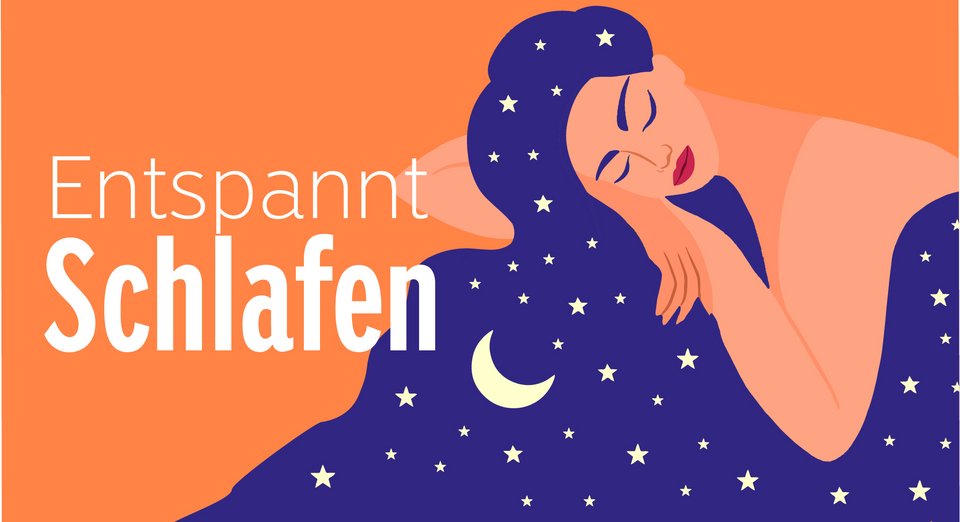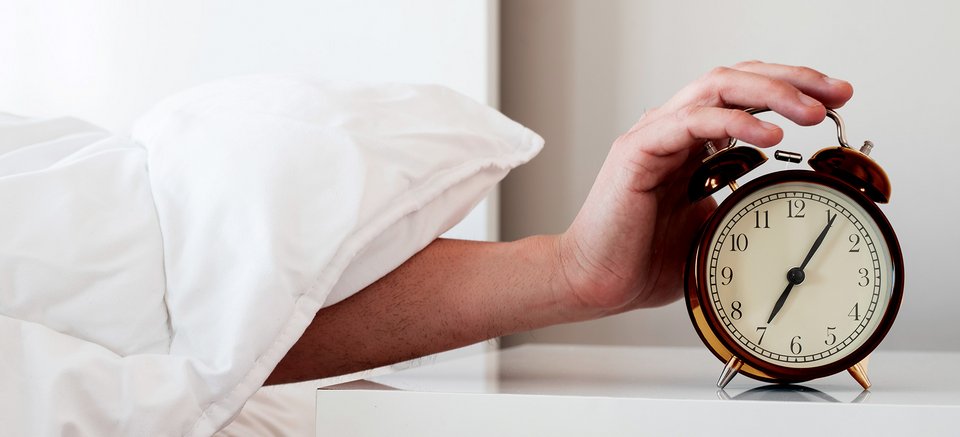
Women suffer from sleep disorders twice as often as men. Worries, health problems, emotional stress - or a snoring partner in a double bed - are to blame. But there are solutions, including a sleep challenge for women (and men).
Sleepless at night, tired during the day - everyone has probably experienced this from time to time. However, if this phenomenon occurs frequently and over long periods of time, it is a sleep disorder. Men are also affected by this, especially senior managers. However, women suffer much more frequently from sleepless nights. Why is that? A closer look reveals fundamental differences in sleep behaviour.
How do sleep problems manifest themselves?
Not falling asleep well, restlessness at night, not being able to sleep through the night, a carousel of thoughts in your head and getting out of bed in the morning completely exhausted: Many women can tell you a thing or two about it. Once the night's rest is out of sync, the pressure that those affected put on themselves increases. But thoughts like "I have to get some sleep! The alarm clock will ring again soon!" are counterproductive and cause even more stress - a vicious circle.
What are the causes?
Much research has been carried out and the causes of female sleep problems are also complex. Broadly speaking, three categories can be identified: medical, genetic and psychological causes, although the boundaries are blurred.
Restless leg syndrome is a chronic neurological disorder that primarily affects women. It causes sensations such as tingling and pulling in the legs and involuntary twitching of the thigh. As the syndrome, which has not yet been fully researched, occurs almost exclusively at rest, the night often becomes a nightmare for those affected.
Hormonal fluctuations, such as those that occur during pregnancy, the menopause and the normal female cycle, are also often the cause of disturbed sleep. Illnesses such as depression or anxiety disorders also cause insomnia.
The internal clock, which is more sensitive in many women than in men, also plays a major role. Irregular bedtimes or time changes are therefore more of a problem for them. In addition, women naturally have a two-hour greater need for sleep than men, which is hardly taken into account in everyday life. Another factor in sleepless nights is stress, which women are less able to shake off before bedtime than men. They are often the ones who have to manage the balancing act between work and family life in the family structure. Challenges such as childcare, caring for relatives, housework or maintaining social ties are among the "typical women's areas" in many families. Women take these daily burdens "to bed" more often than men do. It has also been proven time and again that women develop a much lighter sleep after the birth of a child and retain this for years. Less pronounced deep sleep phases and frequent waking up at night are the result.
What are the effects of sleep deprivation?
If night-time sleep is disturbed for a long time, this has serious consequences: In addition to constant tiredness, concentration problems and forgetfulness occur; performance decreases. The body's regeneration processes, which normally take place at night, no longer function - resulting in a weakened immune system. Insufficient sleep is also associated with many chronic health problems. The risk of heart and kidney disease, high blood pressure, diabetes, strokes and obesity is significantly increased. Mental health is also affected. Of course, these consequences also threaten men who sleep badly all the time.

What can women do?
Those affected can take many measures themselves to make arrangements for restful sleep. Regular exercise and a regular daily routine, at least in the evening, ensure inner balance. Fatty foods and caffeine should be avoided from late afternoon onwards, as should alcohol in the evening. Rituals help you to calm down: An evening meditation, reading time, a yoga session or relaxation exercises signal to the body that it is now time for a good night's sleep.
Electronic devices should be banned from the bedroom, which is best kept cool and dark (ideal sleeping temperature: 15 - 18 degrees Celsius).
If these measures do not lead to success, health insurance companies recommend a visit to the doctor's surgery to ensure a healthy sleep routine with professional support. You will find a corresponding offer from the company medical service in the box below. Taking sleeping pills permanently is not a solution!
By the way:
Women snore too, of course. But men sleep comparatively deeper and without interruptions, so they perceive snoring partners as less of a problem.
Sources:
Institute for Quality and Efficiency in Health Care (IQWiG)
German Society for Psychiatry and Psychotherapy, Psychosomatics and Neurology (DGPPN)
Sleep study "Gender differences in the internal clock in response to environmental stimuli", University of Vienna, 2007

Whether you're a man or a woman, do you fancy a really good night's sleep? Welcome to the REWE Sleep Challenge! Take part and get valuable ideas for improving the quality of your sleep.
The challenge starts on 17 March in the Topfit.app. Within three weeks you have the opportunity to start your ten-day personal challenge. Every day, you have to master a small task relating to healthy sleep. There will also be lots of interesting facts about healthy, restful sleep and a final quiz to check your knowledge, which starts on 31 March. All REWE Group employees can take part, regardless of age or gender. All participants also have the chance to win a great prize!
Additional service:
To accompany the sleep challenge, the company medical service (B.A.D GmbH) is offering individual telephone sleep counselling over a period of six weeks, focusing solely on your specific needs. The counselling service is free of charge. Appointments can be booked from 17 March at Gemeinsam.topfit.* (*does not apply to REWE Region Süd, toom Baumarkt DIY store, Lekkerland and REWE Dortmund).












Both German and English comments appear here.
...a friend of mine had intense sleep problems and after many visits to the doctor, which didn't lead anywhere because no doctor had the idea that it could be a menopausal symptom (unfortunately, the topic of women has still not been fully accepted by doctors, students and scientists), she was able to get the problem under control with progestogens. Just as an addition to the topic and as a possible solution... (Literature tip: Woman on Fire by Sheila de Liz)
I have been suffering from RLS (restless legs syndrome) - also known as restless legs - for over 30 years. It runs in my family on my father's side (father & grandfather). I run a self-help group here in 61169 Friedberg for RLS sufferers who are not under therapeutic, medical or professional guidance. The RLS-SHG is purely an exchange group. I am a member of the RLS e.v. Munich www.restless-legs.org/restless-legs I recommend membership of the RLS association to anyone affected. Among other things, you can get a very important guide to anaesthesia here, which is very important for RLS patients. If you have any further questions, please feel free to contact me at rls.shg.wetterau@gmail.com.